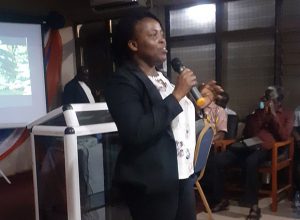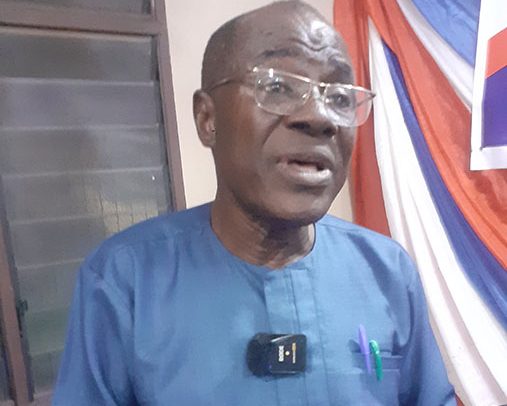Prof Joseph Oteng-Adjei
PEARL Seyram Kumah, a digital currency researcher, has described the emergence of the crypto-currencies in the financial world as a major threat to the operations of traditional banks globally.
She has projected a rapid decline in the patronage of the services of banks in the near future saying many people will prefer dealing with cryptocurrencies like Bitcoin and Ethereum, to the collapse of banks.
Dr. Seyram Kumah was giving a public lecture at the Great Baptist University College (GBUC) in Kumasi on Monday during the launch of its 2022 week under the theme, “Preparing GBUC For Accelerated Capacity Development Towards Charter.”
Speaking on the topic, “The Future of Money: How the Digital Revolution Is Transforming Currencies,” the digital currency researcher, also a senior lecturer at the university college, emphasised that cryptocurrencies are real and legal.
According to her, the demand for the digital currency is high in several countries including some African countries such as Nigeria, Kenya and Zimbabwe since 2018.

Dr Pearl Seyram Kumah
The GBUC’s week celebration is packed with several activities including a series of public lectures, health walk, and fundraising aimed at repositioning and resourcing the university to offer effective and efficient services.
A second lecture scheduled to be held today, has Anthony Adu Nketiah, Chief Executive Officer of Thonket Group of Companies as the speaker.
He will speak on the topic: “Developing Systems that Promote Entrepreneurial Development” to encourage the youth to be entrepreneurs to accelerate national development.
Dugbenoo, Registrar of GBUC, in his welcome address, said all Baptist churches throughout Ghana will on Sunday, May 1, 2022 raise funds to support the university. Launching the week, president of the university college, Prof. Joseph Oteng-Adjei, described students as its major stakeholders, and charged them to play their roles in its development process.
He also encouraged the students to work hard to support the management of the institution to get its presidential charter so that it can be independent of any affiliation.
FROM James Quansah, Kumasi


